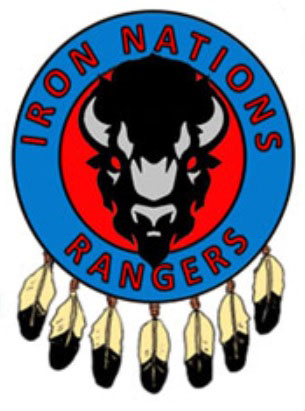Iron Nations Rangers join the battle against ‘social enemies’
In Saskatchewan, File Hills First Nations launch anti-gang, anti-drug program for youths
They’re known as the Iron Nations Rangers. And despite their historical name, they’ve got a modern fight on their hands.
“Years ago, when the different tribes and the Métis were living in Saskatchewan and Manitoba, they bound together for protection against common enemies, and called themselves the Iron Nations Confederacy,” says Len Busch, chief of police with the File Hills First Nations, based near Balcarres, Saskatchewan.
“I often say that it’s time for us to bind together again,” adds Busch. “We still have common enemies, but they’re new enemies. Drugs, gangs—social enemies.”
Last November, Busch and a group of colleagues launched the Iron Nations Rangers program to tackle the problem head-on. Based on the Canadian Armed Forces’ Junior Rangers program, the Iron Nations Rangers program has attracted 30 youths from four of the region’s five First Nations—Okanese, Peepeekisis, Star Blanket and Little Black Bear—for weekly meetings at Balcarres Community School.
This structured and supervised program, for young people aged 10 through 19, teaches traditional skills, life skills and survival skills. Through cultural education, wilderness first aid and interactions with positive role models like Elders and First Nations veterans, the Iron Nations Rangers program is aimed at good citizenship, community responsibility, personal health and welfare, and improved self-esteem.

“There aren’t a lot of positive organized activities for youths out here. We have Aboriginal gangs often trying to recruit youth into that lifestyle. We wanted something to counteract that, and we’ve got a lot of good people here who want to work with our youth and get them on the right path,” says Busch.
“We wanted to get the kids out on the land, exposed to the Elders, introduced to cultural traditions like sweat lodges and sun dances and traditional language,” says Busch.
Enbridge is committed to improving quality of life in communities near our operations and projects, including the Line 3 Replacement Program.
Our relationships with Indigenous and Native American groups are built on trust and mutual respect. We work with these communities to create training programs and employment opportunities around our projects, while at the same time recognizing Indigenous peoples’ close relationship with the land and the environment.
As part of our ongoing community investment activities, we recently made a $15,000 donation to File Hills First Nation to help launch the Iron Nations Rangers program.
And after a couple of short months, word of the Iron Nations Rangers is getting around, says Busch.
“We’re getting questions from other communities about starting other chapters,” he says. “That’s great, but we’re asking them to let us get established first—take it slow and easy, and make sure things are working right here. This is new to all of us.”







